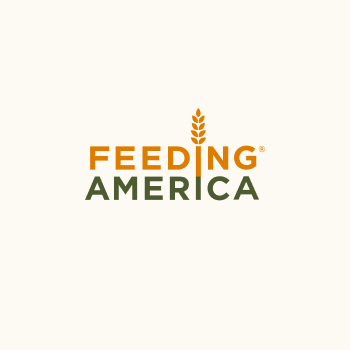Responding to hurricanes on the Gulf Coast and in the Southeast
What’s Happening?
In just over two months, the Gulf Coast and the Southeast have been devastated by four powerful hurricanes.
The most recent storm, Hurricane Zeta, moved across the Southeast on Thursday, October 29, leaving behind a trail of damage. Two million homes and businesse were left without power after destructive winds and rain.
Making a difficult situation even worse, many of the impacted communities were rebuilding from Hurricane Delta earlier this month, Hurricane Sally in September, and Hurricane Laura that made landfall in late August. These storms caused record flooding and led to thousands being evacuated from their homes.
How are Feeding America and local food banks responding?
Feeding America is working with food banks in Louisiana, Alabama, Florida, Texas, and Arkansas to mobilize our disaster response to ensure people impacted by all four hurricanes have the food and resources they need.
At this time, food banks in the impacted areas are working to provide necessary food to their communities. As the extent of damage and need becomes clearer, Feeding America and local food banks will continue providing meals and additional resources to support our neighbors in need.
In the wake of all the natural disasters this year, Feeding America continues to work closely with a network of national emergency response organizations such as the FEMA National Response Coordination Center, National Voluntary Organizations Active in Disaster, and the American Red Cross, as well as member food banks and local emergency officials.
How can I help?
- Donate to Feeding America's Disaster Response Fund. While our neighbors along the Gulf Coast and the Southeast were already dealing with a challenging time, Hurricanes Zeta, Delta, Sally, and Laura have further upended the lives of millions of people. Ensure local food banks can respond in the wake of the storm by supporting Feeding America's disaster response fund.
- Donate to food banks in the impacted area. Donating funds is the most efficient way to support affected food banks as they respond to the need after a disaster. From purchasing extra food to putting gas in trucks, a monetary donation goes a long way at the local level. Find local food banks and donate.
- Follow affected food banks on social media. Local food banks will know what they need most to respond to in their community. Whether that’s food, funds, or volunteers – watch their social channels to learn the best way to make a local impact.
- Learn more about Feeding America’s disaster response efforts. Feeding America and local food banks are on the ground before, during, and after a disaster, ensuring those impacted have food and hope during the toughest of times. Learn more about our national response.























